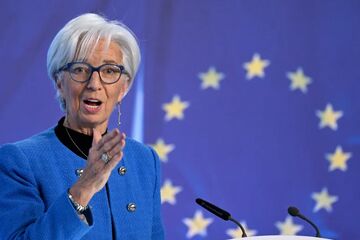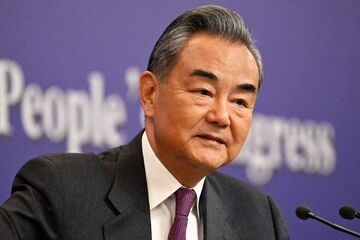TEHRAN (Bazaar) –Nader Entessar, Professor Emeritus of Political Science from university of South Alabama says that Saudi Arabia may want to play its emerging China card to gain more concessions from the United States.
“If Saudi-Chinese relations continue to expand and strengthen, Riyadh will be in a good position to take advantage of the Washington-Beijing rivalry for its own benefit,” Entessar told Bazaar.
Following is the full text of the Bazaar interview with Professor Entessar:
Q: During the visit of the President of China to Saudi Arabia, a comprehensive strategic cooperation agreement was signed between the two countries. What is the importance of this agreement for the two countries and what are the messages of signing it at this time?
A: This agreement signals the growing importance of Saudi Arabia for China's regional policy. China has been expanding its economic presence in Saudi Arabia for some time now, and the latest agreement between Beijing and Riyadh will elevate Chinese-Saudi relations to a new and higher economic and strategic level.
Q: From the economic aspect, what is the importance of the countries of GCC for China?
A: The GCC countries hold a pivotal place in China's energy policy and its Belt and Road designs. The expansion of the Chinese footprint among the GCC countries has grown significantly and it now surpasses the volume of Chinese economic activities in Iran.
Q: Mohammed bin Salman has said at the meeting of the leaders of the Arab countries and China that this meeting will create historical progress in the relations between China and Saudi Arabia and will strengthen the relations in all fields. The countries of the GCC look forward to all kinds of partnerships and accelerated development in their relations with China. According to these statements, it seems that in the new world order, China's position is special and Saudi Arabia's relationship with China is not just to send a message to America, it has a strategic aspect. what is your opinion?
A: I agree with the general thrust of this assessment as both China and Saudi Arabia seek new paths to navigate in the everchanging and fluid environment of today's international politics and global order. However, Saudi Arabia maintains historical and deep ties with the United States and will be careful not to alienate its main protagonist as it develops new relations with Beijing.
Q: China and Saudi Arabia issued an anti-Iranian statement and emphasized the need to strengthen joint cooperation between Beijing and Riyadh to ensure the peacefulness of Iran's nuclear program and asked Iran to cooperate with the International Atomic Energy Agency and adhere to the Nuclear Non-Proliferation Treaty. They also emphasized the importance of Iran's respect for the principles of good neighborliness and non-interference of this country in the internal affairs of the region’s countries. Can this issue affect the relationship between China and Iran?
A: Some of the issues in the joint China-Saudi Arabia statement are perfunctory and do not deviate from what the Chinese have been saying for a long time. I assume the Chinese were trying to curry favor with their hosts and convey the message that they do not take sides in the Saudi-Iranian conflict. That said, the timing and the venue of the statement will not please the Islamic Republic.
Q: In the meeting with the President of China, the Saudi Crown Prince mentioned Saudi Arabia's plans to achieve clean energy and said that the countries of the GCC will remain a reliable source of energy in the world. Does this mean that the energy of the region will no longer be a tool to control competitors from the United States?
A: No. In fact, it appears that Saudi Arabia may want to play its emerging China card to gain more concessions from the United States. If Saudi-Chinese relations continue to expand and strengthen, Riyadh will be in a good position to take advantage of the Washington-Beijing rivalry for its own benefit.















نظر شما